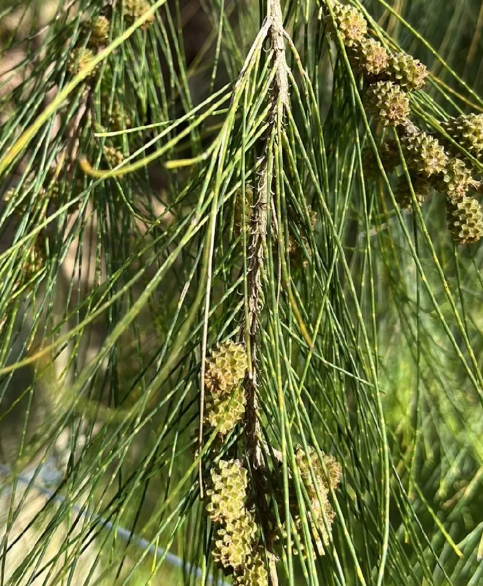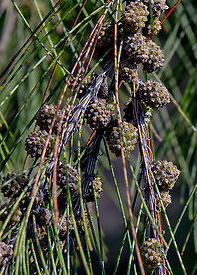Casuraina Plant
A tall tree known for its needle-like foliage, thriving in sandy to loamy soil, drought-tolerant, and used for medicinal purposes. |

Habit
Tree
Height
10-30 m
Growth
Medium
Soil
Sandy to loamy
Shade
Full Sun
Moisture
Low
Edible
No
Medicinal
Yes
Origin
Australia, Southeast Asia
Climatic Condition
Tropical, Subtropical
Temperature (°)
20 to 35°C
Humidity (%)
40-70%
Potting media
Native soil with compost
Fertilizers
Minimal fertilizer needs
Watering
Moderate, avoid waterlogging
Plant Weight
5-20 kg
Flowering Time
Non-flowering
Soil Ph level
5.5 - 7.5
Water Ph level
5.5 - 7.5
Soil EC
1-3 dS/m
Yield Per Plant
Used for timber, windbreaks
NPK ratio
10:10:10
life Span
40-50 years
Health Benefits
Soil improvement, windbreak plant, nitrogen fixer
Suggested Grow Media or Potting Mix ?
| 40% loam, 30% sand, 30% compost |
Suggested Fertigation/Fertilizers
| 40% loam, 30% sand, 30% compost |
Common Diseases and Remedies
Root Rot, Powdery Mildew, Rust, Aphids, Scale Insects
Wilting, white fungal coating, orange pustules
Copper-based fungicides, systemic insecticides
HEALTH BENEFITS
· Digestive Aid: Castor oil is a strong laxative.
· Skin and Hair Health: Castor oil promotes hair growth and hydrates skin.
· Anti-inflammatory: Used for pain relief in arthritis and muscle soreness.

